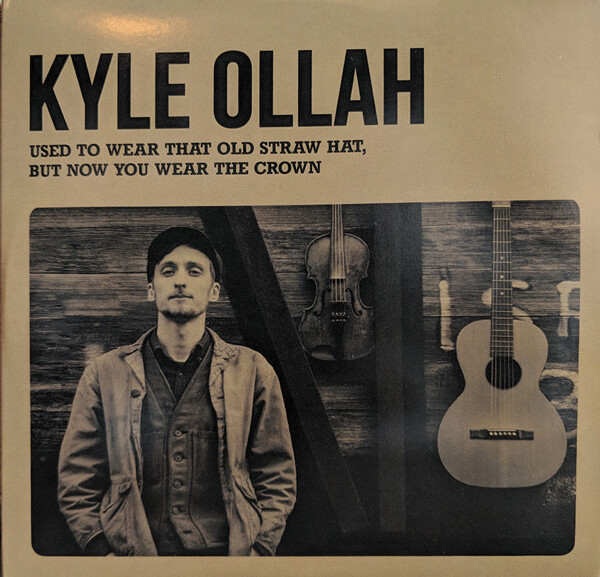Used to Wear that Old Straw Hat, but Now You Wear the Crown

Duluth folk musician Kyle Ollah released his first album, Used to Wear that Old Straw Hat, but Now You Wear the Crown. Ollah has been seen across Duluth for years now, frequenting Amazing Grace, Thirsty Pagan, and Sir Ben’s among other musical venues.
The name for the album is interesting--much longer than you would usually see for a CD. It comes from the second track, Born and Raised in Covington, originally by Roscoe Holcomb. Ollah said he was drawn in by that line, and thought the mental imagery it created was beautiful.
Used to Wear that Old Straw Hat begins with The Riddle Song, an English folk lullaby. Ollah said he enjoys these sorts of songs but doesn’t perform them live often because the lyrics aren’t easy to hear over the chatter of those in the audience. The Riddle Song, and the albums last song, The Devils Nine Questions, are both these sorts of wordy ballads that translate best over recording.
Ollah switches up between what he calls the three sisters of American Folk Music: the banjo, guitar, and fiddle. His biggest influence is Mississippi John Hurt, but he is also influenced by those around him in the local folk music scene. I brought up Charlie Parr and he said that he remembers seeing Parr when he was 13, and bring effected by what music could be created and enjoyed.
One of my favorite songs on this album is called The Hangman. It’s a murder ballad, meaning a ballad that deals with, well, murder and crime. It tells the story of a guy about to be executed unless someone can pay the executioner. Several people from his life come, not to pay the fine but to watch him die. Eventually his true loves comes and pays the fine. It’s a bizarre song when you really think about it. Ollah compared it to humor in our modern day; in twenty years it won’t make any sense because we have in our collective moment given it humor and meaning.
I also really enjoyed Wouldn’t Mind Dying if Dying was All. It’s a fast-paced song that gets the listener to tap their feet along with the beat. It’s a fairly well-known Christian folk song recorded by Blind Willie Johnson is 1930. Ollah takes his own musical spin on this song, and the others on Used to Wear that Old Straw Hat. He said he loves this old folk music and respects what others before him created.
All the songs on Used to Wear that Old Straw Hat are covers of old folk songs. He described folk music as something played by people learning music from people. A great example of this is the third track, Twenty-one Summers. The song was once available online where Ollah heard and learned to play it. Since then he cannot find it online anymore.
“Here’s the interesting thing, I learned about it from an archive and it was a prison kind of recording, a capella, and I learned it, and now it’s disappeared,” said Ollah. “When I think about this stuff, the tradition of learning a folk song is typically learned from people. We live in an age where you don’t have to do that anymore. And you can get your brain really relaxed because you figure “oh I can just go on YouTube if I forget that verse because its always going to be there” but that’s not true, that song doesn’t exist online anymore so I’m glad i learned it, so at least I have my version of it.”
Next week Ollah is heading to West Virginia on a scholarship to learn from masters in the Cajun musical tradition. He said within his musical career its hard to financially move forward, but he got a grant to create Used to Wear that Old Straw Hat, and with this scholarship allowing him to travel and learn from professionals, he is able to become better and further himself musically.

